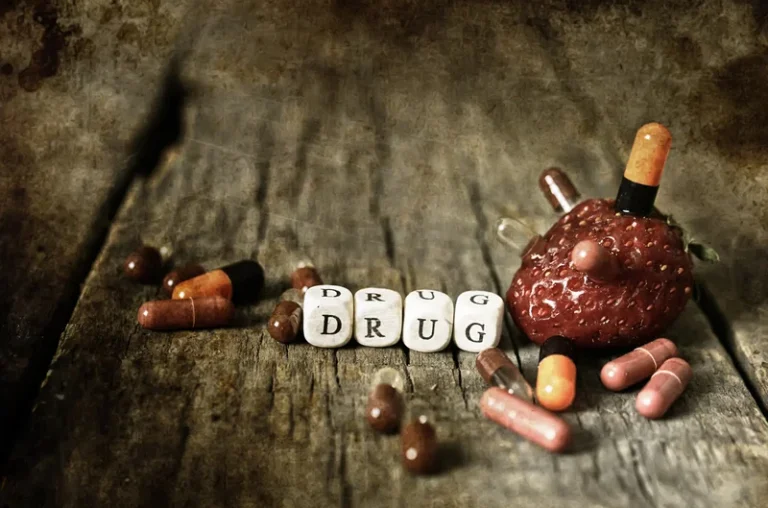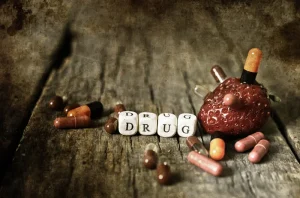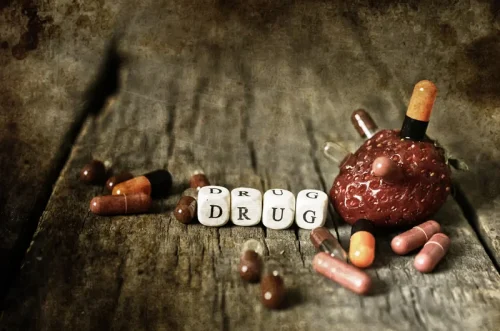
Heavy drinking is believed to cost the U.S. economy more than $200 billion a year in lost productivity, health costs, and property damage. But as with all medications, it’s important to remember changing our biochemistry can come with consequences. Possible side effects of semaglutide use so far range from nausea to shrinking heart muscles. We’re still discovering the long-term impacts of this drug on human bodies. Over nine weeks, the participants received a dose of semaglutide or a placebo once a week. They were then asked to log their alcohol cravings and consumption levels during the trial.

Depression in Older Adults
Alcohol use continues to take up more of your time and energy, impacting your physical and mental health until you need to take serious steps to address your drinking problem. But the next morning, you notice that your depressive symptoms or anxious thoughts are worse than usual. Although drinking this much might not seem like a big deal in the moment, you may regret your choices later. You might struggle with the immediate physical consequences—headache, nausea, weakness, poor sleep quality.
Personal Genetic Factors

These effects can increase your risk of various types of cancer, including mouth, throat, esophagus, breast, liver, and colon cancer. As you start to prioritize your alcohol use, it can have a negative effect on your work, school, or social life. You might try cutting back on your drinking but find that binge drinking effects you suffer headaches, fatigue, anxiety, or irritability on the days when you don’t drink.
Alcohol and your health: Risks, benefits, and controversies
- Binge drinking also increases the likelihood of unsafe sexual behavior and the risk of sexually transmitted infections and unintentional pregnancy.
- Engage in hobbies, sports, or social events that promote health and well-being without the need for excessive drinking.
- Despite this, less than half of the US public is aware of any alcohol-cancer connection.
- While many believe that alcohol abuse is not as serious as other forms of substance abuse, binge drinking and heavy drinking can cause severe and life-threatening harm.
- Alcohol lowers inhibitions and, in the moment, makes you feel more relaxed.
- Reach out to trusted friends or family members if you’re struggling with binge drinking.
Dr. Charles Landis, a gastroenterologist and liver transplant specialist at Harborview Medical Center, has been seeing more younger patients in need of liver transplants. This is not the typical situation for people with chronic alcohol overuse, which suggests to him that binge drinking may play a role. Binge drinking is more common among college-aged people and millennials. At least half of alcohol-related deaths can be attributed to binge drinking. While many people binge drink on occasion, adults with mild-to-severe alcohol use disorder are unable to limit their intake.
- More than 1 in 10 people aged 65 and older binge drink at least once a month.
- You might start the night with the intention of drinking one or two beers.
- The number of women who binge drink has steadily increased over the past decade, Dr. Koob says.
- Many experts define it as drinking enough alcohol during a 2-hour period to bring the BAC to 0.08%.
- You might also worry about whether alcohol is causing permanent damage to your brain or heart health.
Some binge drinkers only drink once a week; others even less frequently. In fact, abstaining from alcohol between sessions of excessive alcohol consumption is a key characteristic of binge drinking. You may think that because you’re not physically dependent on alcohol and don’t have to drink every day that your drinking isn’t harmful. However, binge drinking can have serious consequences and any unhealthy patterns of alcohol use can lead to more serious problems. A binge drinker is someone who consumes a large amount of alcohol in a short period, typically reaching a blood alcohol concentration (BAC) of 0.08% or higher.

- Drinking the same amount over several hours as well as eating food during that time will have less effect on your blood alcohol concentration (BAC).
- Determine the amount and frequency of alcohol that you feel comfortable with and that aligns with responsible drinking guidelines.
- It’s common for binge drinking to occur socially—for example, at a wedding reception, house party, or a night out.
- Whether you decide to set a hard limit or not, make a habit of following up every alcoholic beverage with a non-alcoholic one.
One of the most immediate dangers of binge drinking is that it can severely impair your judgment and put you at increased risk of immediate harm. Binge drinking puts a person at risk of short- and long-term health problems. These problems include hangovers, injuries, overdoses, alcohol use disorder, heart and liver disease, and cancer. It’s not uncommon for people to get defensive when others point out their unhealthy drinking habits. Halfway house Your loved one might deny the problem, deflect, or get mad at you.

El consumo excesivo y peligroso de alcohol
They often drink to avoid the negative emotional effects of not drinking and may obsess over when they can drink next. About 17% of U.S. adults report binge drinking in the past year. Binge drinking frequency decreases with age but remains common among older adults. More than 1 in 10 people aged 65 and older binge drink at least once a month. Remember, personal responsibility and self-awareness are key when it comes to stopping and preventing binge drinking. By taking control of your choices and seeking support when needed, you can make positive changes in your relationship with alcohol and prioritize your health and well-being.
